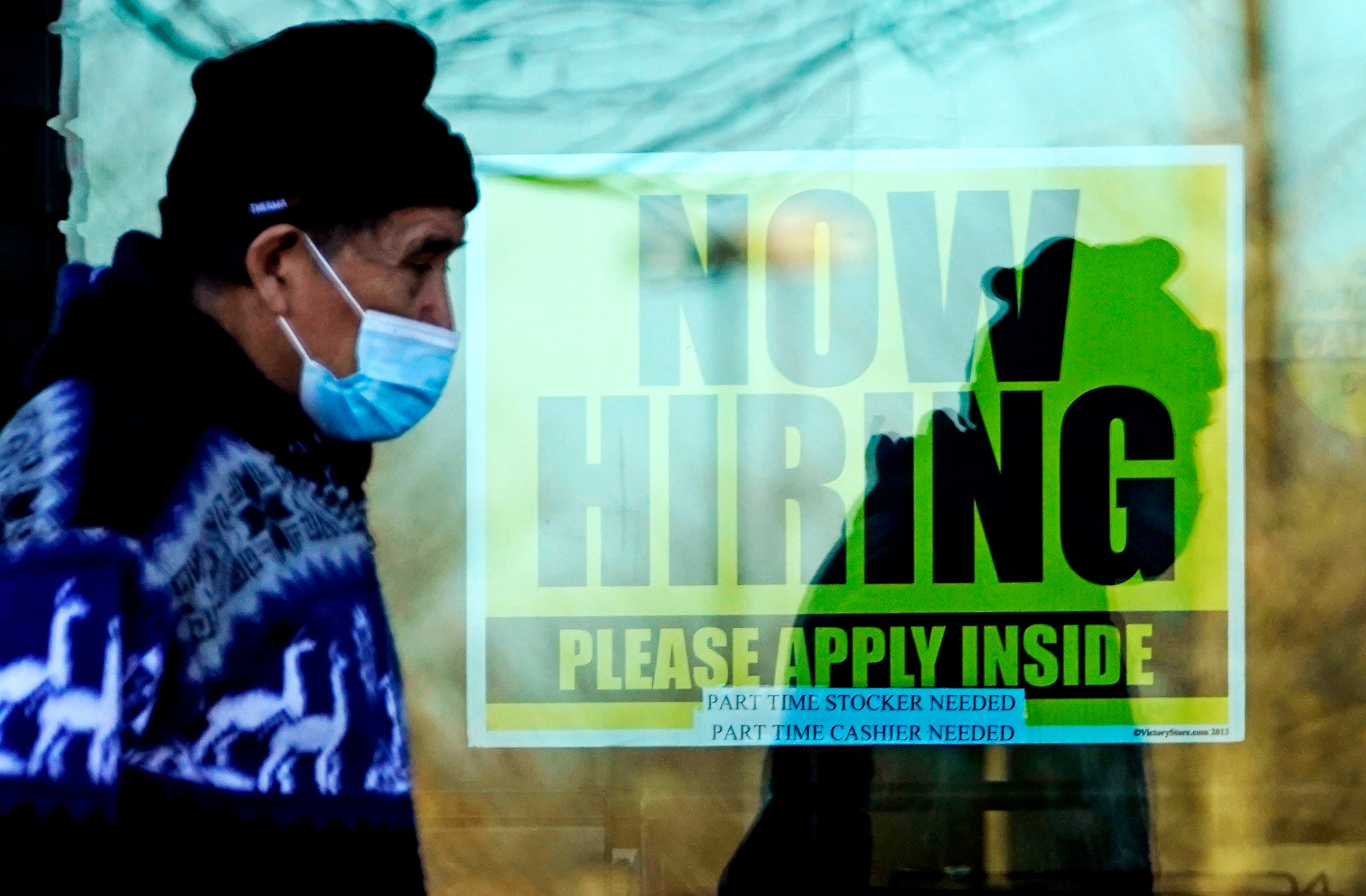Things to Know: US Hospitalizations plunge, but still high
The number of people hospitalized with COVID-19 in the U.S. has dropped by 80,000 in six weeks

Your support helps us to tell the story
From reproductive rights to climate change to Big Tech, The Independent is on the ground when the story is developing. Whether it's investigating the financials of Elon Musk's pro-Trump PAC or producing our latest documentary, 'The A Word', which shines a light on the American women fighting for reproductive rights, we know how important it is to parse out the facts from the messaging.
At such a critical moment in US history, we need reporters on the ground. Your donation allows us to keep sending journalists to speak to both sides of the story.
The Independent is trusted by Americans across the entire political spectrum. And unlike many other quality news outlets, we choose not to lock Americans out of our reporting and analysis with paywalls. We believe quality journalism should be available to everyone, paid for by those who can afford it.
Your support makes all the difference.Here’s what’s happening Thursday with the coronavirus pandemic in the U.S.:
THREE THINGS TO KNOW TODAY:
— The number of people hospitalized with COVID-19 in the U.S. has dropped by 80,000 in six weeks, and nearly 17% of the nation’s adult population has gotten at least one dose of a vaccine. The U.S. has seen a dramatic turnaround since December and January, when hospitals were teeming with patients after holiday gatherings and pandemic fatigue caused a surge in cases and deaths. Health officials acknowledge the improvement but point out that hospitalizations are still at about the same level as earlier peaks in April and July and right before the crisis worsened in November. Deaths are still persistently high, though much lower than the peak in early January, when they sometimes exceeded 4,000 per day.
— The Black Lives Matter Global Network Foundation is formally expanding a $3 million financial relief fund that it quietly launched earlier this month to help people struggling to make ends meet during the ongoing coronavirus pandemic. It plans to make 3,000 microgrants of $1,000 each to people who it believes need it most. If approved, the money is deposited directly into recipients’ bank accounts or made available on prepaid debit cards. The Survival Fund was launching Thursday as the nation waits for Congress to take action on a nearly $2 trillion relief package that includes $1,400 direct stimulus payments to individuals who earn less than $75,000 in annual income.
— Having trouble booking a COVID-19 vaccine appointment online? You’re not alone. To cope, some people have turned to bots that scan websites and send alerts when slots open up. Bots provide relief to people struggling to score appointments. But not all public health officials are fans. Some say they give even more of an advantage to tech-savvy people. One Massachusetts clinic canceled appointments after learning that out-of-towners used a bot to scoop them up. Health officials are putting in measures to prevent the use of bots and say phone scheduling is available if people can’t navigate the websites.
THE NUMBERS: According to data through Wednesday from Johns Hopkins University, the seven-day rolling average for daily new cases in the U.S. fell over the past two weeks, from roughly 104,298 on Feb. 10 to 65,763 on Wednesday. Over the same period, the seven-day rolling average for daily new deaths also fell, from nearly 2,588 on Feb. 10 to about 2,141 on Wednesday.
QUOTABLE: “I think helping others has to do something to your brain chemically because if we had not been doing everything that we’re doing, I think this would have been a much scarier time,” said Sofia Moncayo, a volunteer leading a food distribution program through a church in New York City. “Being able to dig in and help others, it really gives you perspective and helps you believe that you’re going to be OK too.”
ICYMI: Older people are learning to shop online for the first time during the pandemic. Spending for people 65 and older shot up 60% last year from a year earlier. And even though they still spend less than the total population, they are the fastest-growing group of online shoppers by age group. It’s not easy for many, and children and nursing-home staff often have to help. Grocery delivery services are trying to cater to them. But there are many barriers. Millions can’t shop online at all, because they don’t have internet or devices.
ON THE HORIZON: Georgia Gov. Brian Kemp is announcing that teachers are up next for COVID-19 vaccinations, after weeks of waiting. Kemp spokesperson Mallory Blount says the Republican governor was announcing on Thursday vaccination plans that will include teachers. Kemp has also faced pressure to open vaccinations to people with disabilities and frontline workers such as those who work in poultry processing plants. The state is nearing 1 million test-indicated COVID-19 infections and reached 17,000 confirmed and probable virus deaths Wednesday.
___
Find AP’s full coverage of the coronavirus pandemic: https://apnews.com/hub/coronavirus-pandemic